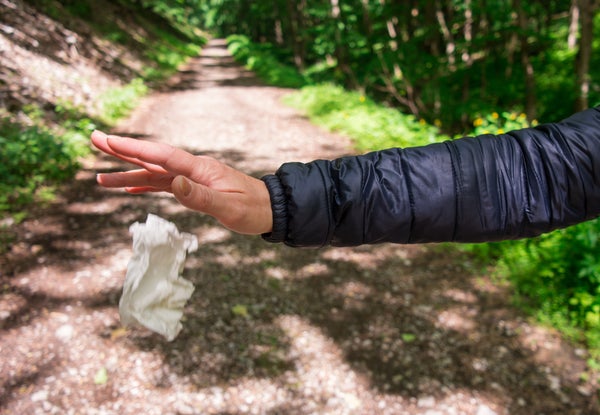Women have long surpassed men in the arena of environmental action; across age groups and countries, females tend to live a more eco-friendly lifestyle. Compared to men, women litter less, recycle more, and leave a smaller carbon footprint. Some researchers have suggested that personality differences, such as women’s prioritization of altruism, may help to explain this gender gap in green behavior.
Our own research suggests an additional possibility: men may shun eco-friendly behavior because of what it conveys about their masculinity. It’s not that men don’t care about the environment. But they also tend to want to feel macho, and they worry that eco-friendly behaviors might brand them as feminine.
The research, conducted with three other colleagues, consisted of seven experiments involving more than 2,000 American and Chinese participants. We showed that there is a psychological link between eco-friendliness and perceptions of femininity. Due to this “green-feminine stereotype,” both men and women judged eco-friendly products, behaviors, and consumers as more feminine than their non-green counterparts. In one experiment, participants of both sexes described an individual who brought a reusable canvas bag to the grocery store as more feminine than someone who used a plastic bag—regardless of whether the shopper was a male or female. In another experiment, participants perceived themselves to be more feminine after recalling a time when they did something good versus bad for the environment.
On supporting science journalism
If you're enjoying this article, consider supporting our award-winning journalism by subscribing. By purchasing a subscription you are helping to ensure the future of impactful stories about the discoveries and ideas shaping our world today.
Men may eschew green products and behaviors to avoid feeling feminine. In one study, we threatened the masculinity of male participants by showing them a pink gift card with a floral design and asking them to imagine using the card to purchase three products (lamp, backpack, and batteries). Compared to men shown a standard gift card, threatened men were more likely to choose the non-green rather than green version of each item. The idea that emasculated men try to reassert their masculinity through non-environmentally-friendly choices suggests that in addition to littering, wasting water, or using too much electricity, one could harm the environment merely by making men feel feminine.
Ironically, although men are often considered to be less sensitive than women, they seem to be particularly sensitive when it comes to perceptions of their gender identity. In fact, a previous study suggests that men find it to be more difficult than women to choose between masculine and feminine versions of everyday food and household items and will usually change their preferences to be more manly when allowed time to think about their decisions. Something as simple as holding a purse, ordering a colorful drink, or talking in a high voice can lead to social harm, so men tend to keep a sharp eye out for any of these potential snares.
So what can pro-environmental marketers do to buffer against the threat posed to men by the green-feminine stereotype? First, eco-friendly marketing messages and materials can be designed to affirm men’s masculinity and give them the confidence to overcome their fear of being judged as feminine when engaging in green behaviors. For example, in one experiment, men who received feedback affirming their masculinity were more interested in purchasing an eco-friendly version of a cleaning product. Men who feel secure in their manhood are more comfortable going green.
Second, green products and organizations can be marketed as more “Men”-vironmentally-friendly, with more masculine fonts, colors, words, and images used in the branding. To illustrate, men in one experiment were more likely to donate to a green non-profit with a masculine logo (black and dark blue colors featuring a howling wolf, with the name “Wilderness Rangers” in a bold font) than one with a traditional logo (green and light tan colors featuring a tree, with the name “Friends of Nature” in a frilly font). And in a field study conducted at a BMW dealership in China, male customers were more interested in a hybrid vehicle after viewing a print ad featuring a masculine term in the model’s description than when viewing the traditional print ad.
Together, these findings highlight how the green-feminine stereotype inhibits men from taking eco-friendly actions, and suggest that masculine affirmation and masculine branding may be effective in narrowing the gender gap in environmentalism. Make the man feel manly, and he’s more likely to go green.

